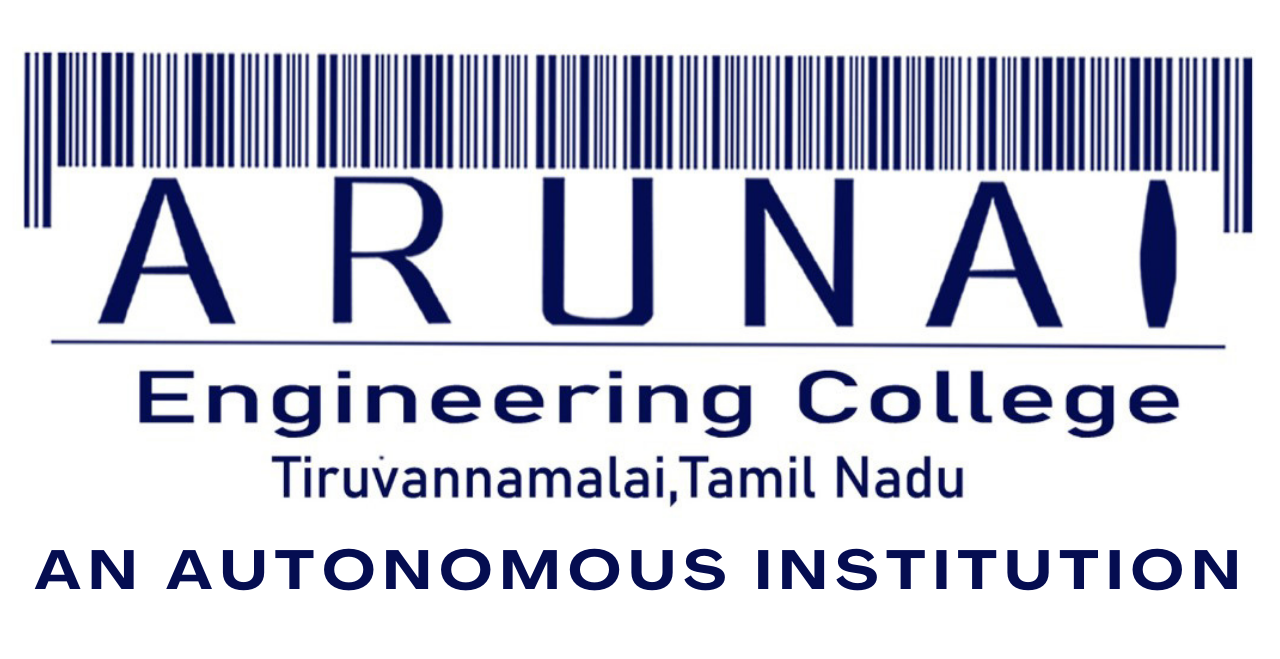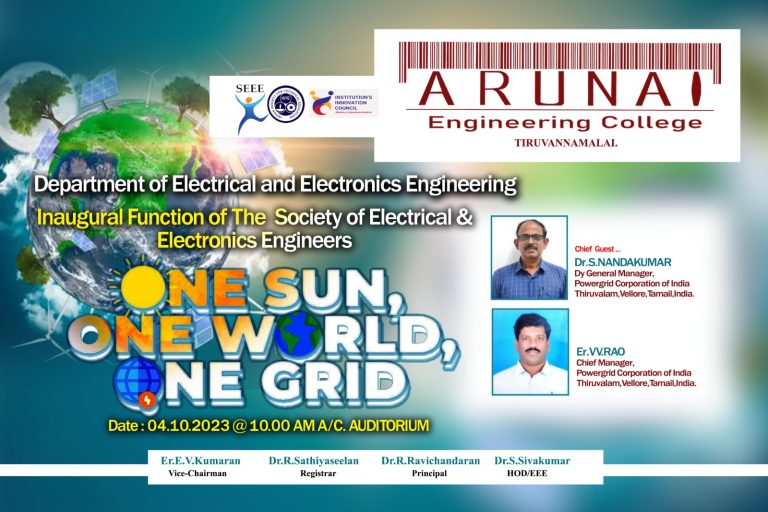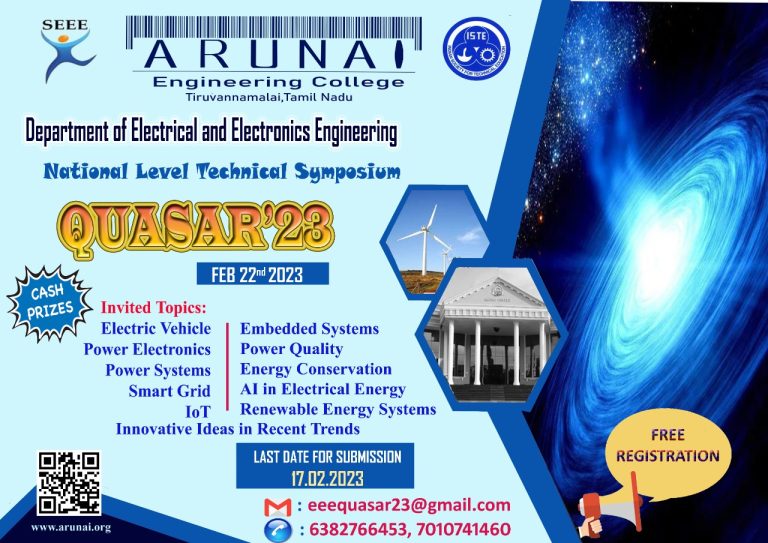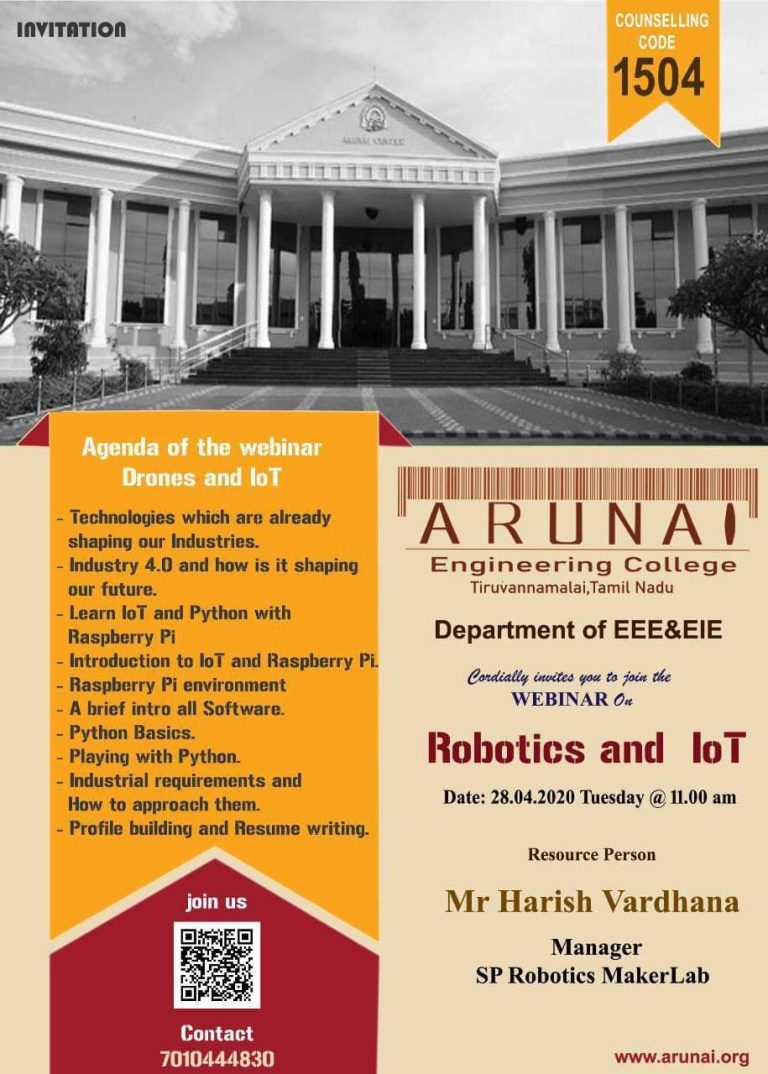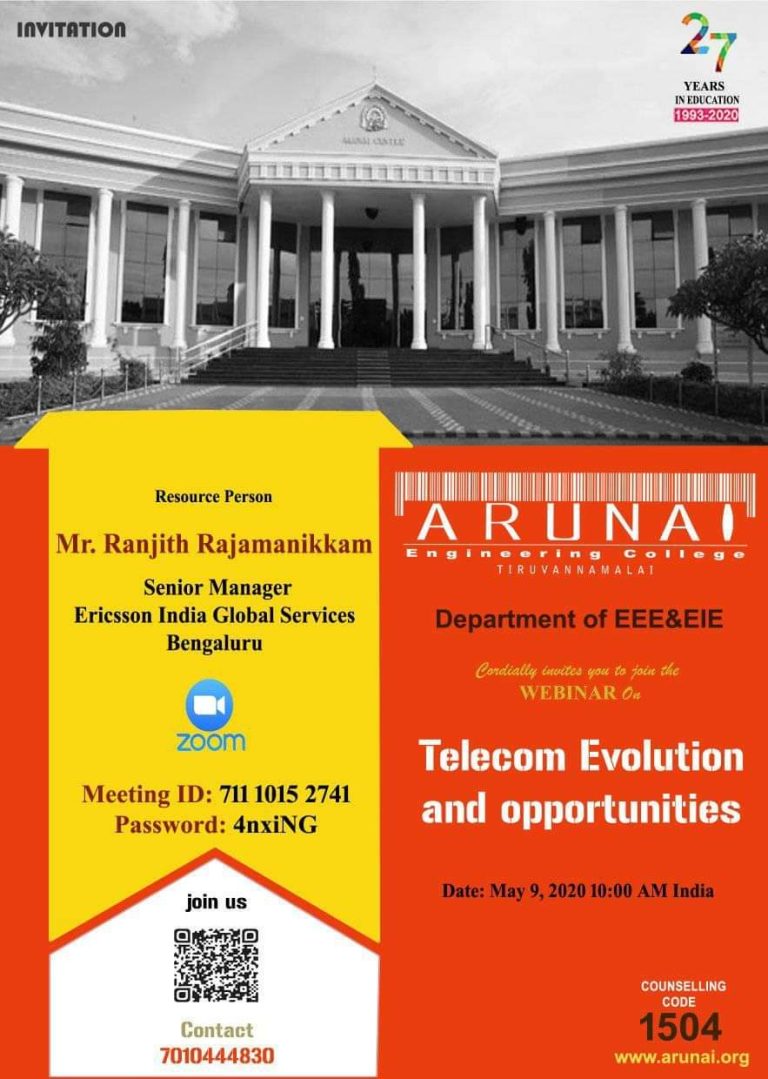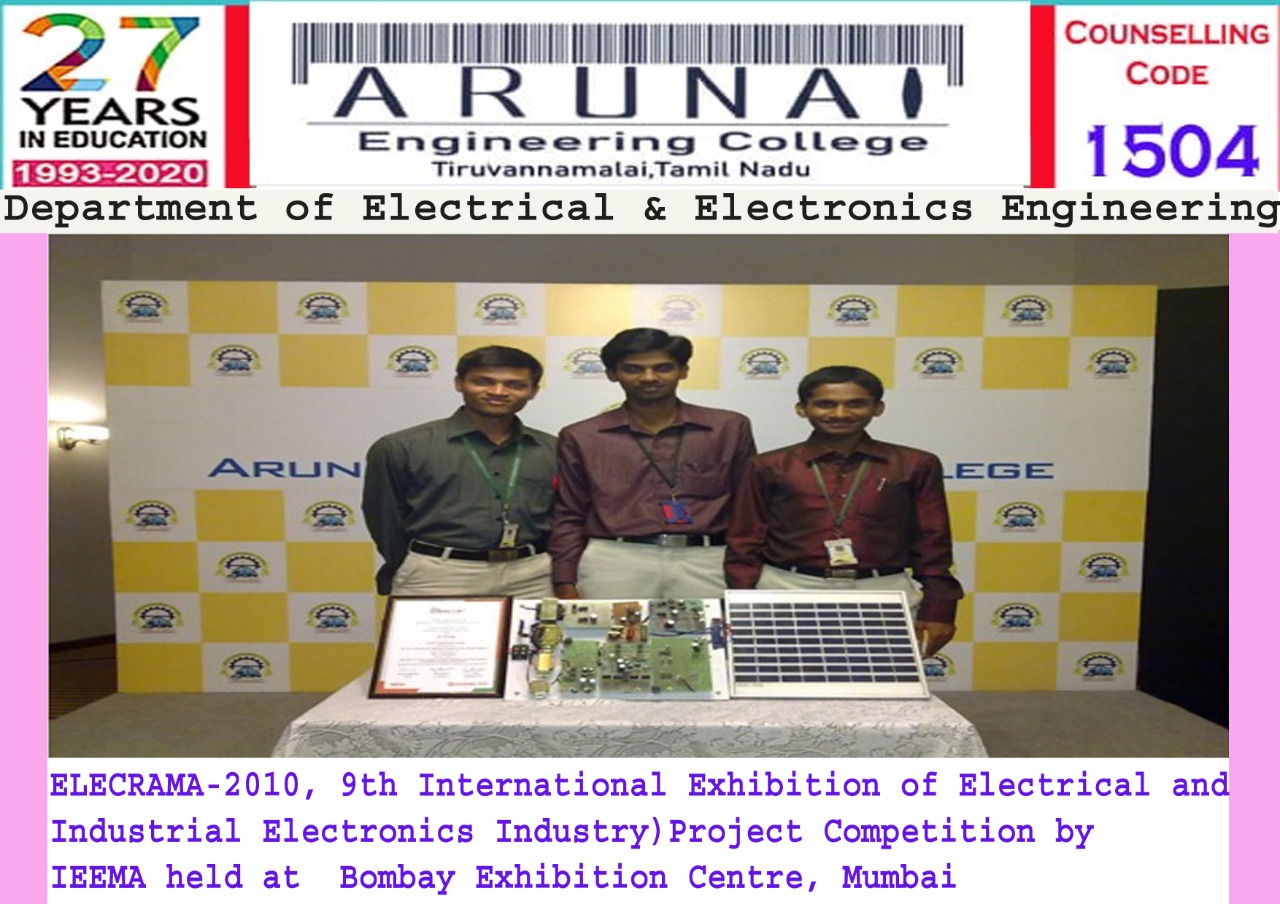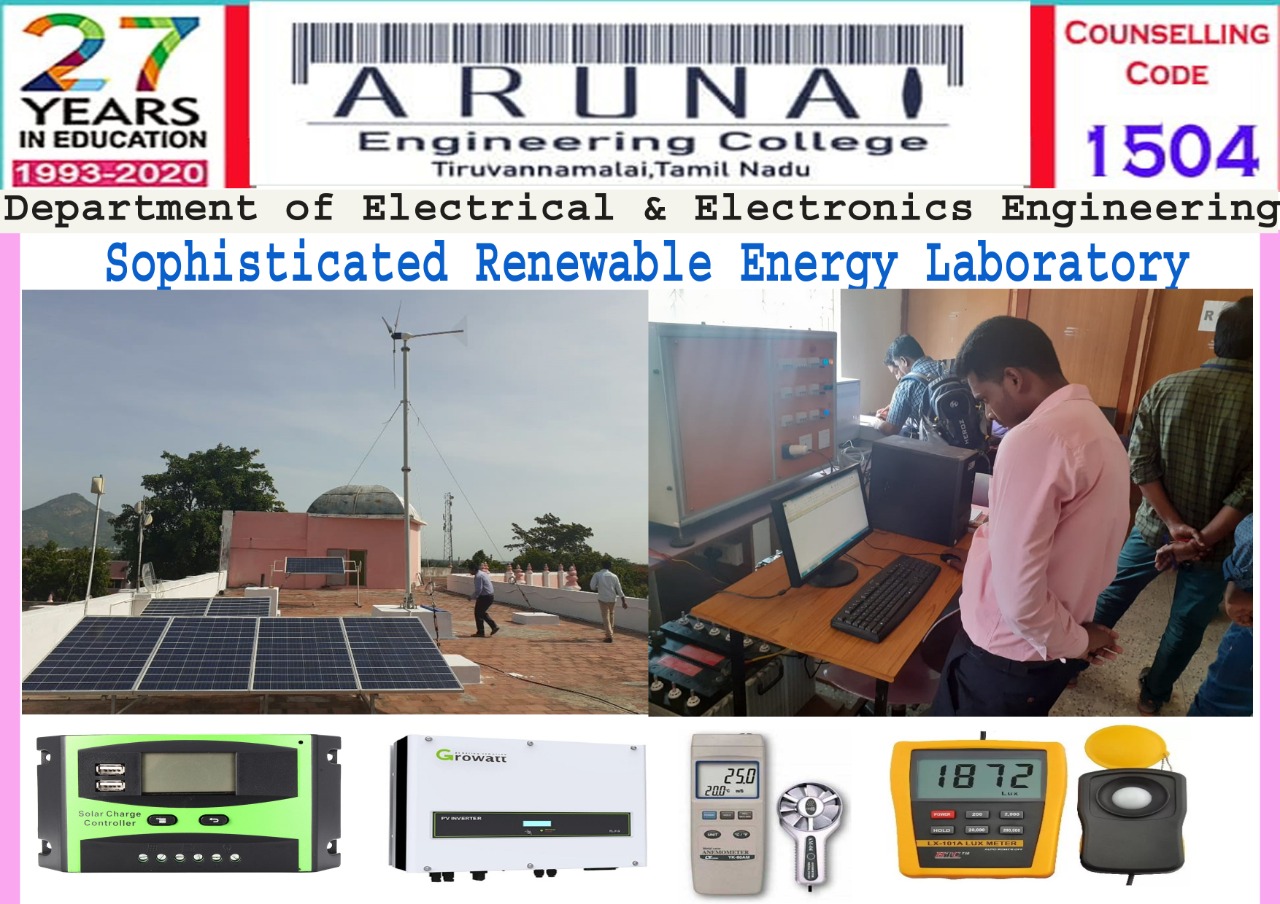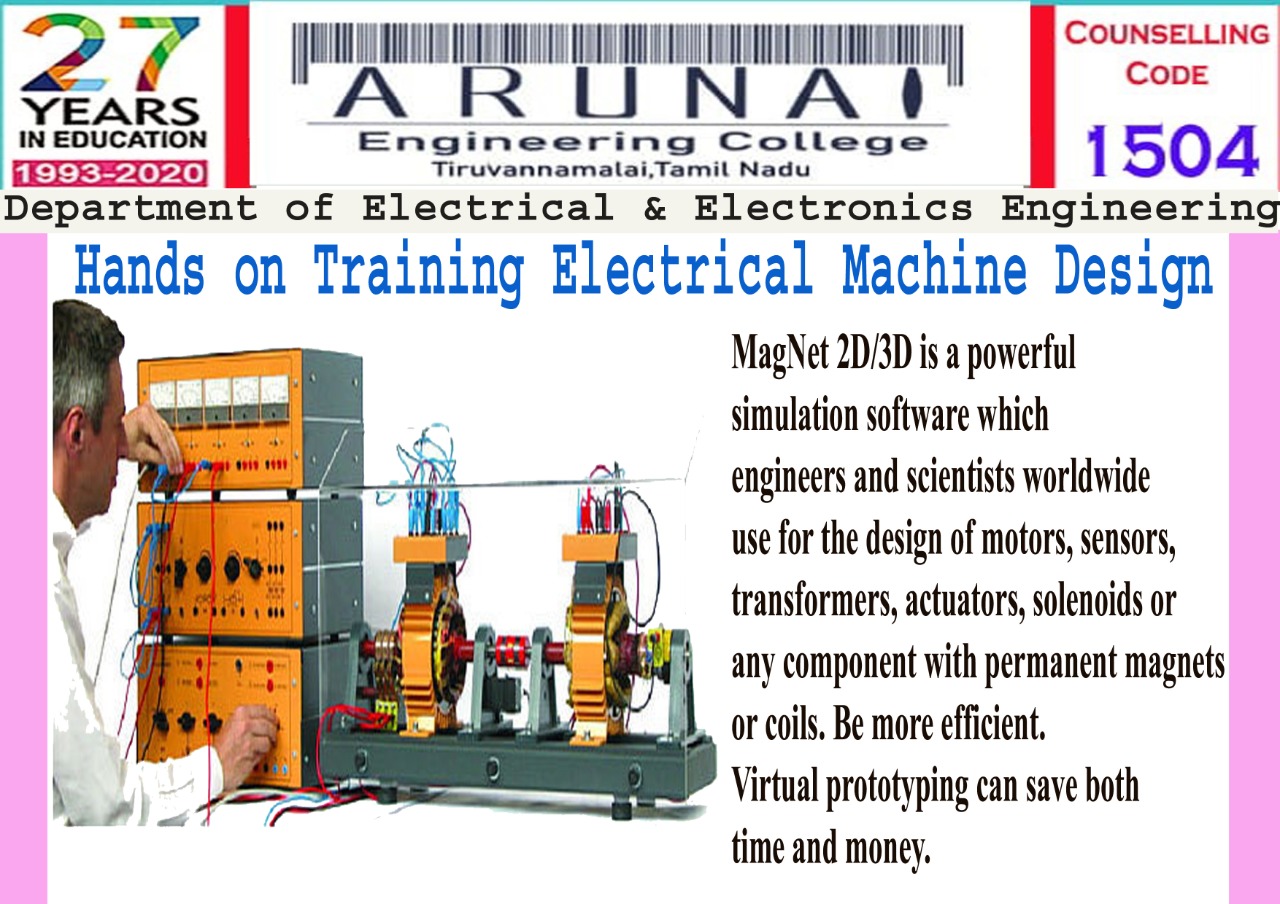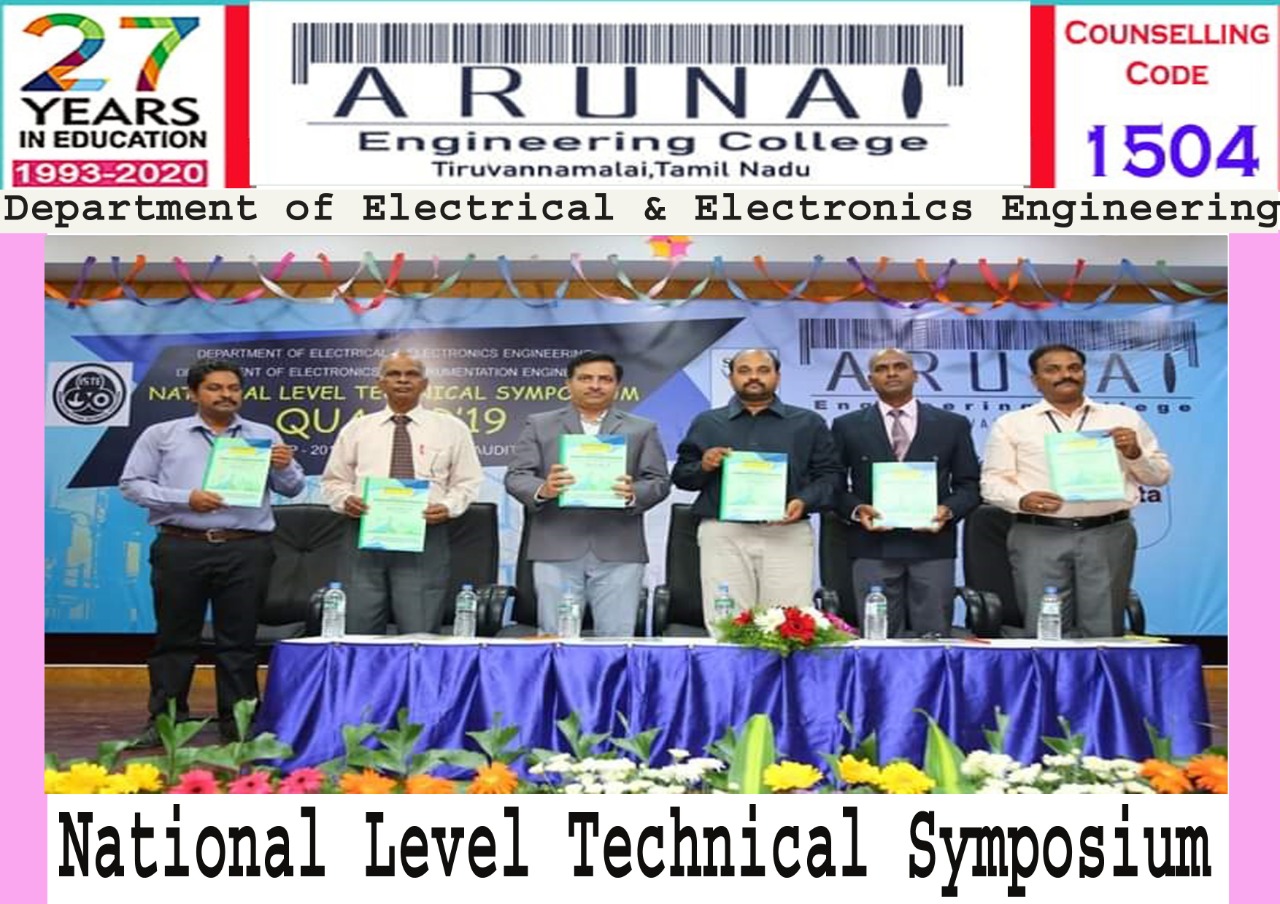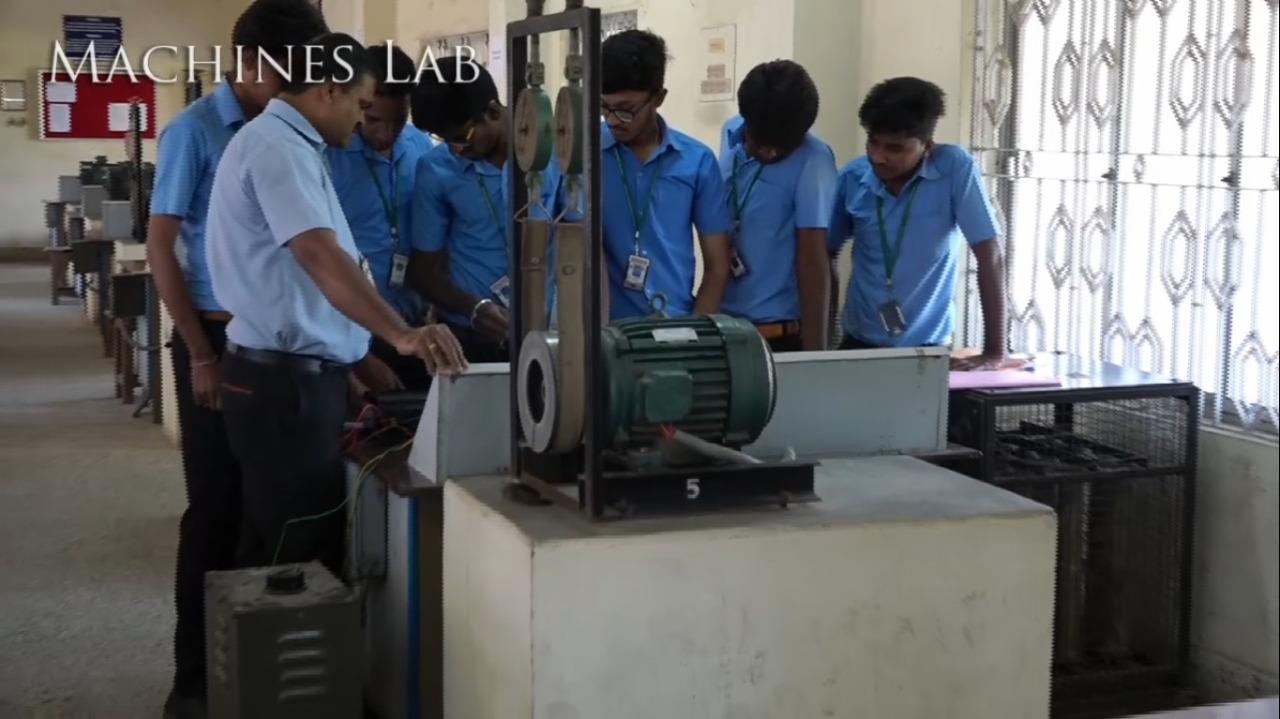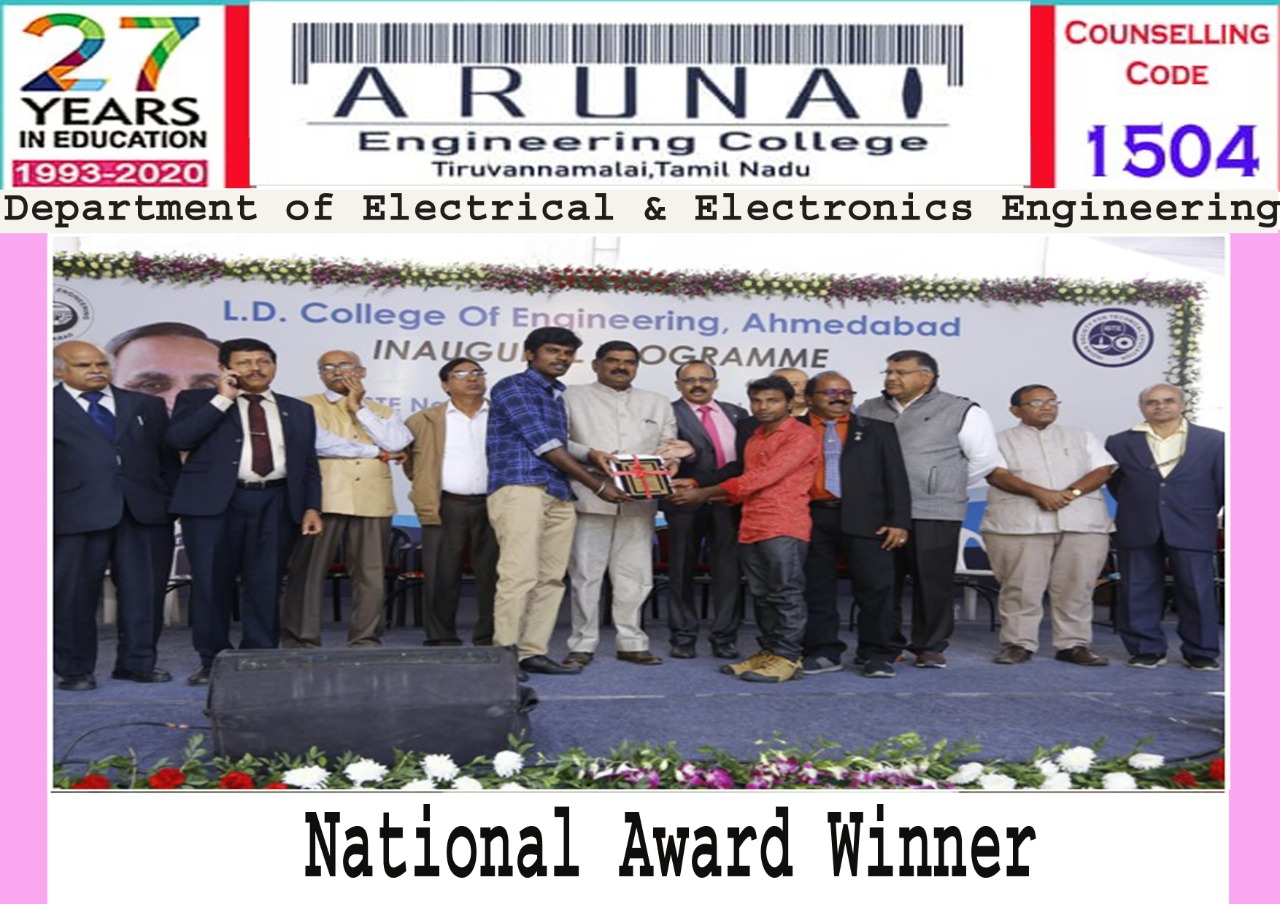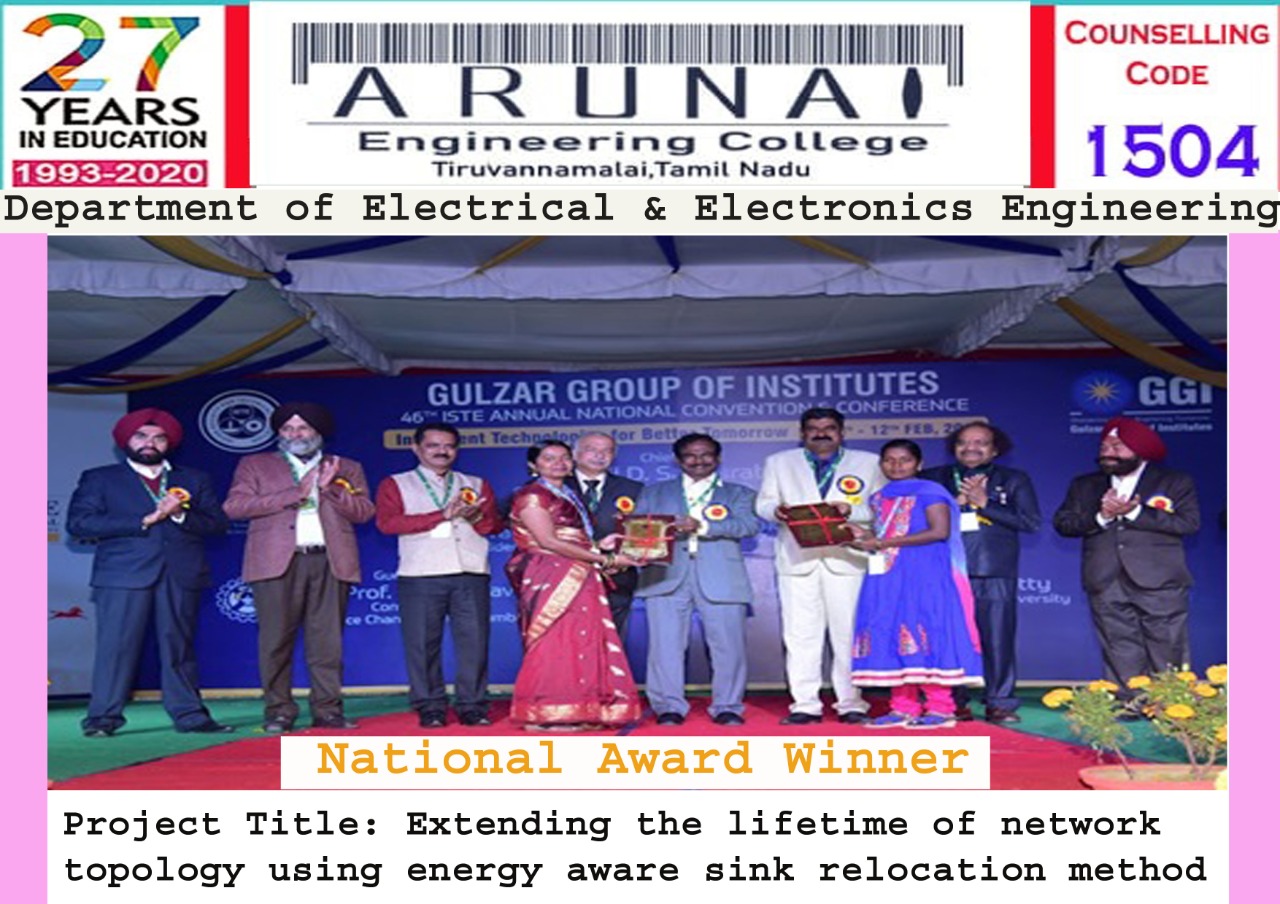Latest Videos
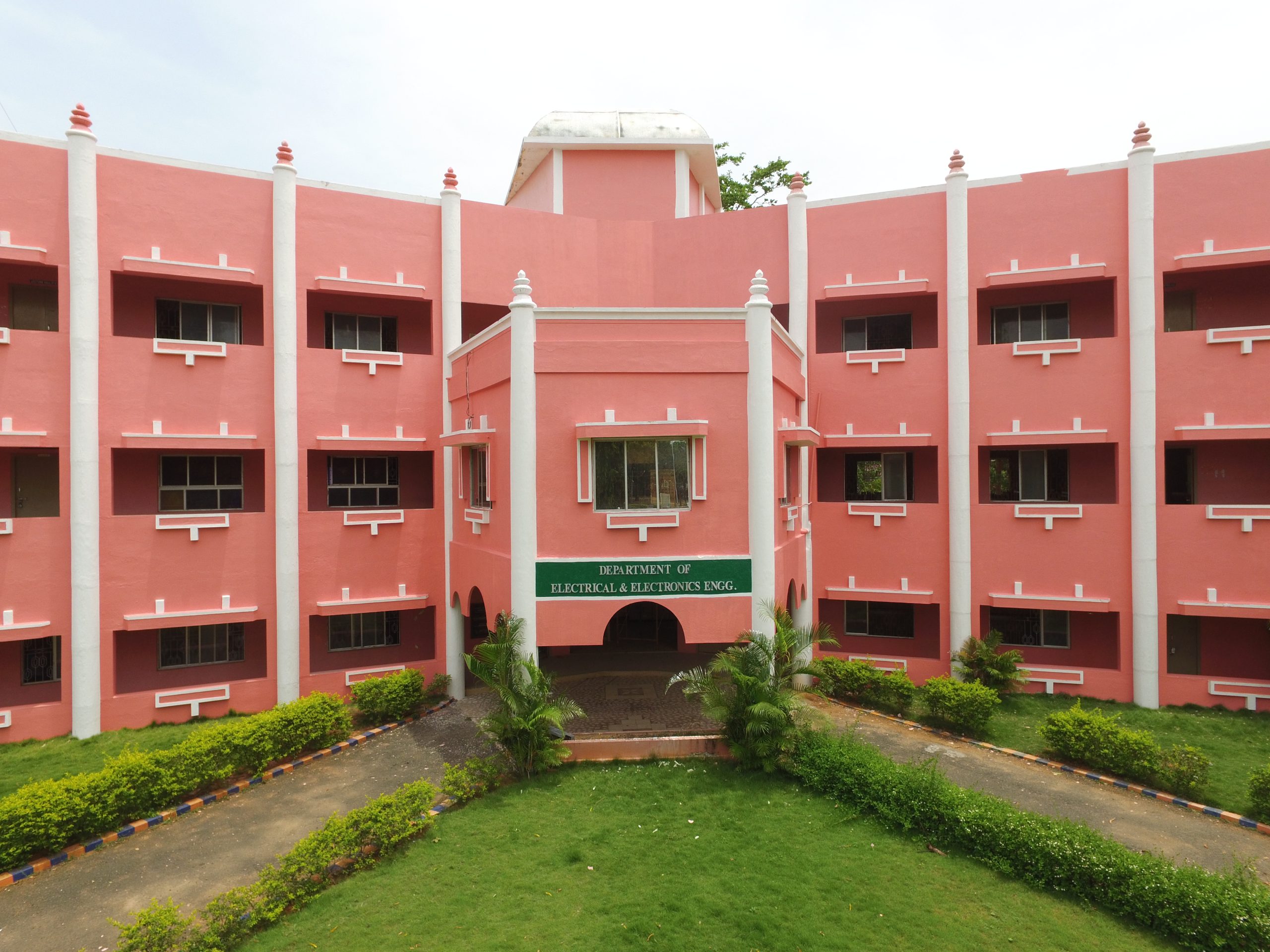
B.E - Electrical and Electronics Engineering
The Department was established in the year 1993. It is one of the founding department of the institution. Along with the BE degree programme, the department offers the PG Degree programmes in Power Electronics & Drives and Embedded System Technologies with a total strength of 470 Students, and 30 Teaching and Non – teaching Staff members. The PG degree programme Power Electronics & Drives was established in the year 2005 and the Embedded System Technologies was established in the year 2011. The UG & PG – Power electronics and Drives programmes are accredited by NBA. The Department is an approved Nodal Centre for doing Research in Anna University Chennai and Annamalai University, Chidambaram.
Research projects funded by DST, AICTE, and TNSCST under various schemes of financial outlay worth of Rs.5 Crores are under progress.
The department has an agreement with “TECHNOLOGY INFORMATION, FORECASTING AND ASSESSMENT COUNCIL (TIFAC), New Delhi for establishing a ‘TIFAC-CENTRE OF RELEVANCE & EXCELLENCE FOR ELECTRIC TRANSPORTATION SYSTEMS under technology Vision – 2020 Mission on up gradation of Science and Engineering Colleges.
To Enlighten the Young Technocrats with Technical and Entrepreneurial Skills to meet the Challenges of the World.
To provide Student Centric Learning Environment so as to produce socially relevant Electrical and Electronics Engineers with technical competence and analytical skills for taking up leadership roles in industries and research organizations.
• To impart quality education both in theory and practice covering the entire gamut of Electrical and Electronics Engineering.
• To conduct collaborative research and consultancy work in cutting edge technologies, to meet the global challenges.
• To empower the students to meet the requirements of electrical and electronics sector work and administrative services.
Program Educational Objectives (PEO)
PEO1 : I. Find employment in Core Electrical and Electronics Engineering and service sectors.
PEO2 : II. Get elevated to technical lead position and to lead the organization competitively.
PEO3 : III. Enter into higher studies leading to post-graduate and research degrees.
PEO4 : IV. IV. Become consultant and provide solutions to the practical problems of core organization.
PEO5 : V. V. Nurture as an entrepreneur and be part of electrical and electronics product and service industries.
Program Outcomes (POs)
PO1 – Engineering Knowledge: Apply knowledge of mathematics, basic science andengineering science.
PO2 – Problem Analysis: Identify, formulate and solve engineering problems.
PO3 – Design / Development of solutions: Design an electrical system or process to improve its performance, satisfying its constraints.
PO4 – Conduct investigations of complex problems: Conduct experiments in electrical and electronicssystems and interpret the data.
PO5 – Modern tool usage: Apply various tools and techniques to improve theefficiency of the system.
PO6 – The engineer and society: Conduct themselves to uphold the professionaland social obligations.
PO7 – Environment and sustainability: Design the system with environment consciousnessand sustainable development.
PO8 – Ethics: Interacting industry, business and society in aprofessional and ethical manner.
PO9 – Individual and team work: Function in a multidisciplinary team.
PO10 – Communication: Proficiency in oral and writtenCommunication.
PO11 – Project management and finance: Implement Cost effective and improved system.
PO12 – Life-long learning: Continue professional development and learning as a life-long activity.
Program Specific Outcomes (PSOs)
PSO1 -Foundation of Electrical Engineering Ability to understand the principles and working of electrical components, circuits, systems and control that are forming a part of power generation, transmission, distribution, utilization, conservation and energy saving. Students can assess the power management, auditing, crisis and energy saving aspects. power systems
PSO2 -Foundation of Mathematical Concepts: Apply appropriate techniques and modern Engineering hardware and software tools in power systems to engage in life- long learning and to successfully adapt in multi-disciplinary environments
PSO3 –Ability to use knowledge in various domains to identify research gaps and hence to provide solution which leads to new ideas and innovations.
We, at Arunai Engineering College, strive to bring out and nurture the talents and skills of youth with quality technical education, motivate them to be self disciplined and develop their competence to face the challenges of globalization.
Alumni's Feedback

Ajithkumar Hariraman
A college is a home away from home where we discover ourselves and are guided onto the right path.

Jayakumar
Arunai Engineering College is really a Heaven for Students to pursue their dreams in the field of Engineering and Technology.
Latest News
Telecom Evolution & Opportunities
May 09, 2020 | @ 10:00 AM Telecom Evolution & Opportunities Webinar conducted by Dept of EEE
